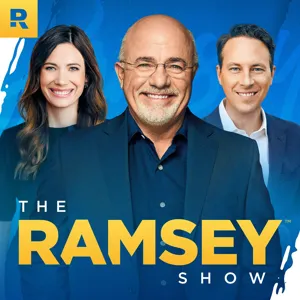Public policy in the United States often overlooks wealth. We tend to design, debate and measure our economic policies with regard to income alone, which blinds us to the ways prosperity and precarity tangibly function in people’s lives. And that blind spot can ultimately prevent us from addressing social inequality at its roots.
Take the debate over student loan cancellation. Cancellation is often framed as an economically regressive policy — an elite giveaway of sorts — with the majority of benefits going to individuals toward the top end of the income distribution. But that distributive picture flips when you look at wealth instead of income. One recent paper found that if the federal government decided to forgive up to $50,000 in student loan debt, the average person in the 20th to 40th percentiles for household assets would receive more than four times as much debt cancellation as the average person in the top 10 percent.
Louise Seamster is a sociologist at the University of Iowa whose work focuses on the intersection of wealth, race, education and inequality. She’s one of the sharpest minds studying the way systems of wealth creation and depletion shape everything from the benefits of higher education to the barriers to racial equality to the nature of democratic citizenship. And her cutting-edge research on the student debt crisis and the racial wealth gap served as a major source of inspiration for Senator Elizabeth Warren’s $50,000 loan forgiveness plan.
This conversation begins with a discussion of the student debt crisis in particular: what it’s like to live with crushing levels of debt, the debate over whether cancellation is fair to those who have paid off their loans, why you can’t truly understand the student debt crisis without understanding the wealth dynamics that undergird it, how loan forgiveness would alter the racial wealth gap, what an entirely different model for funding higher education would look like and more.
But this discussion is also more broadly about what it means to think in terms of wealth — and its inverse, debt — and what a radically different picture that reveals about the American economy and society.
Mentioned:
“Racialized Debts: Racial Exclusion From Credit Tools and Information Networks” by Raphaël Charron-Chénier and Louise Seamster
“An Administrative Path to Student Debt Cancellation” by Luke Herrine
“Black Debt, White Debt” by Louise Seamster
“Student Debt Cancellation IS Progressive: Correcting Empirical and Conceptual Errors” by Charlie Eaton, Adam Goldstein, Laura Hamilton and Frederick Wherry
“Student Debt Forgiveness Options: Implications for Policy and Racial Equity” by Raphaël Charron-Chenier, Louise Seamster, Tom Shapiro and Laura Sullivan
“Predatory Inclusion and Education Debt: Rethinking the Racial Wealth Gap” by Louise Seamster and Raphaël Charron-Chénier
“Racial Disparities in Student Debt and the Reproduction of the Fragile Black Middle Class” by Jason N. Houle and Fenaba R. Addo
Book Recommendations:
The Color of Money by Mehrsa Baradaran
A Pound of Flesh by Alexes Harris
The Sum of Us by Heather McGhee
This episode is guest-hosted by Tressie McMillan Cottom, a sociologist and writer whose work focuses on higher education policy, popular culture, race, beauty and more. She writes a weekly New York Times newsletter and is the author of “Thick and Other Essays,” which was a finalist for the National Book Award, and “Lower Ed: The Troubling Rise of For-Profit Colleges in the New Economy.” You can follow her on Twitter @TressieMcPhD. (Learn more about the other guest hosts during Ezra’s parental leave here.)
You can find transcripts (posted midday) and more episodes of "The Ezra Klein Show" at nytimes.com/ezra-klein-podcast, and you can find Ezra on Twitter @ezraklein. Book recommendations from all our guests are listed at https://www.nytimes.com/article/ezra-klein-show-book-recs.
Thoughts? Guest suggestions? Email us at ezrakleinshow@nytimes.com.
“The Ezra Klein Show” is produced by Annie Galvin, Jeff Geld and Rogé Karma; fact-checking by Mary Marge Locker and Michelle Harris; original music by Isaac Jones; mixing by Jeff Geld, audience strategy by Shannon Busta. Special thanks to Kristin Lin.





